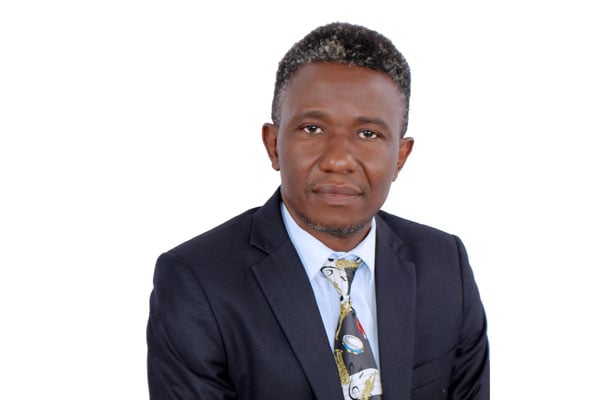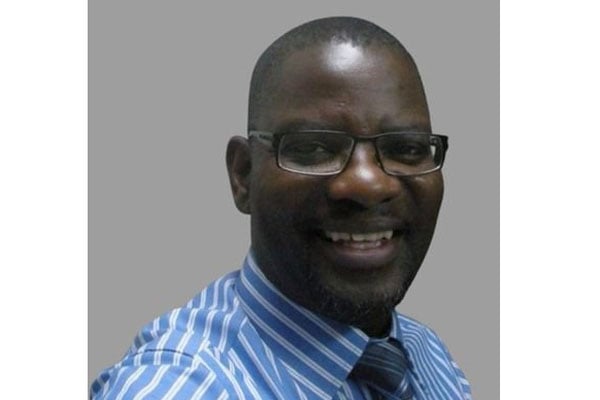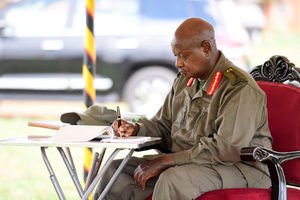
Writer: Gawaya Tegulle. PHOTO/FILE
He’s been gone 20 years now, that Yunus Abbey, bless his soul; but this week I agreed with myself that I owe him...and Idi Amin, an apology. At the dawn of the new millennium, December 1999, I authored an article on Idi Amin in The New Vision. I captured his background and then, making a meal of his bloody human rights record, I tore him to pieces. I concluded by saying his departure was good riddance for Uganda. When the article ran, Yunus, a senior reporter at The New Vision, and a gentle soul of very few words, called me aside.
“Isn’t there any good thing that Idi Amin did?” he asked. I insisted Amin was nothing more than a blood-thirsty dictator.
Deep within I was adamant partly because I thought Yunus was biased. Like Amin, Yunus was a Muslim, from West Nile. And he was the only journalist in Uganda who had access to the former president; he’d go to his residence in Saudi Arabia to interview him. Now, come to think of it, why didn’t Yunus use that opportunity to write Amin’s story, from the horse’s own mouth? Wasted prospect!
Now, older and most definitely wiser too, I look back and see that the bloody human rights record aside, there was something wonderful and undeniable about Amin: in his own rough, non-enlightened way, he loved this country and wanted the best for it, even though he lacked the critical wherewithal to manage a country that only an education, and a good one at that, can grant. Erratic and unsophisticated, Amin was largely a product of his times and was punching above his weight. The Indian Question for one, was a disaster and it was badly and evilly implemented; but it was mitigated by the small lining that, by expelling Indians, Amin wanted the economy in the hands of citizens. Nearly 180 large enterprises of Indians were nationalised and put under the Uganda Development Corporation (UDC).
Then came the highly educated “revolutionaries” of the National Resistance Army (NRA) in 1986, bubbling with political ideology, with lots of grandstanding and political posturing. They delivered long speeches on what Africa’s problem was and how it could be solved. There was the initial honeymoon period, in which what we believed what we can now plainly see, were lies: we have come to restore democracy, rule of law, ensure regular, peaceful, free and fair elections, and see peaceful handover of power. And no, we can’t stay on forever, because Africa’s problem is leaders who come and don’t want to go away. Blah, blah, blah!
But slowly, the paint and camouflage began to wear off; revealing the true nature of the “revolutionaries”. While Amin sought to see the State own property, the “revolutionaries” have done the reverse: getting State enterprises and properties into private hands, their own hands actually and in a very corrupt manner at that! This explains why many of them own what is State property. The “revolutionaries” have done very little for the people, but plenty for themselves.
A keen observation and analysis of the acts and doings of this regime over the last 38 years will lead to only one logical conclusion: the so-called “revolution” was never about putting things right in Uganda. It was about a small, extremely hungry and ravenous bunch getting State power and gaining control over State resources and thereafter, gratifying themselves, having a good time at the expense of the taxpayer, with impunity, since they have guns. Until you sort or straighten this out, forget about fighting corruption.
In essence, when you declare war on corruption, you are doing two things: first, you are waging war against the treasured ideal and the actual ideology of the so-called “revolution” of the NRA. You are touching the heart and soul of those who went to the bush and laboured for five years, with blood and iron, to capture power.
Second, you are trying to bring the ruling government down. Inquiring into corruption is tearing down the very foundations upon which this regime was built. That’s why the warning has been categorical and unequivocal: you are playing with fire and will be crushed. Anti-corruption crusaders are, therefore, enemies of the “revolution”; which is why you saw serious military hardware rolled onto the streets...to protect the “revolution.”
Gawaya Tegulle is an advocate of the High Court of Uganda







